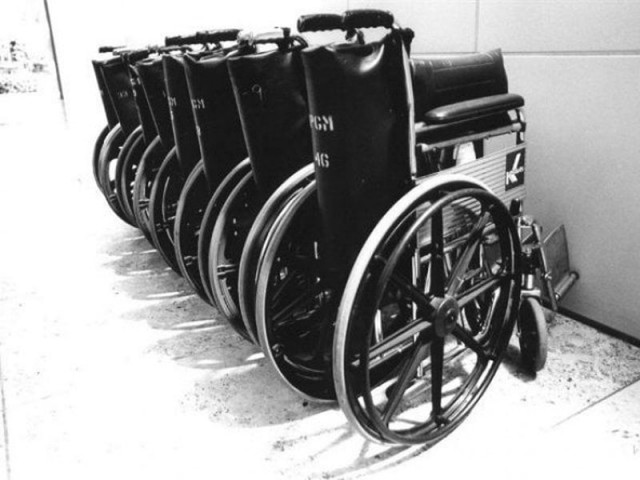After the blasts: The forgotten victims of conflict
Pakistan’s internal security policy is silent on the rehabilitation of victims of the conflict.

Muhammad Asif was only 22 when he lost both legs in a bomb blast.
Since then, the sole breadwinner of his family has no source of income and depends on charity to make ends meet.
Coming from a modest background in Azad Kashmir, Asif, now 35, lost his legs, below the knees, in a bomb blast at Islamabad’s fruit and vegetable market on September 19, 2000. The blast killed 16 and injured 60 including Asif.
At the time, Asif ran a makeshift fruit stall in Rawalpindi’s Saddar area. He was in the market loading crates of fruit on to his pushcart when the explosion took place. “It was a sunny morning.
Labourers were unloading fruits crates from lorries when the bomb went off,” he recalled.
He woke up 15 days later on a bed in Polyclinic, missing his legs. He was handed nominal compensation by the state and soon forgotten.
The compensatory money was not enough to get by on, and he soon had to sell his fruit stall.
Fifteen years on, Asif is in a wheelchair. Artificial limbs could enable him to walk again, but the pricetag is too steep. “The estimated cost of the artificial limbs is Rs4.5 million. The cheap attachments I am using are too heavy to move,” said Asif, who exuded a strong desire to rise up and start a normal life again.
Shattered dreams
Asif left his village for Rawalpindi some 15 years ago, dreaming a better future for himself and his family.
He now lives in a rented room in Railway Lokshed Colony, paid for by charity.
So why didn’t he go back to his village after the incident?
“Who will support me and my family back in the village?” he said in a sad voice.
Determined to get back on his feet and support his family, Asif has appealed to philanthropists for support to buy artificial limbs and re-establish his stall. “Begging makes me feel guilty, but I have to eat”.
At the forefront of war on terror, Pakistan has a formidable task of rehabilitating victims of the conflict. According to the South Asian Terrorism Portal (SATP), 399 civilians have been killed and 873 injured in terrorist attacks this year alone.
Misplaced priorities
There are thousands of survivors like Asif who have lost limbs in bomb blasts. Poor compensation and limited availability of welfare and rehabilitation schemes has driven many to begging for charity.
Pakistan’s internal security policy is silent on the rehabilitation of victims of the conflict, particularly civilians. So far, the state has failed to look after those crippled in bomb blasts. Monetary compensation is not a sustainable option. What the country needs most is a mechanism of rehabilitation for civilian victims of the war on terror.
Published in The Express Tribune, June 9th, 2014.



















COMMENTS
Comments are moderated and generally will be posted if they are on-topic and not abusive.
For more information, please see our Comments FAQ